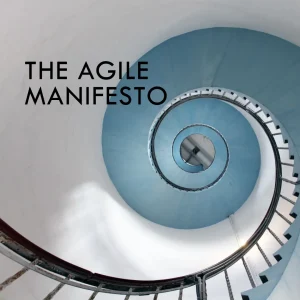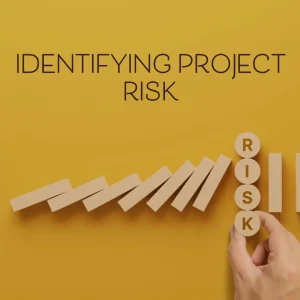I. Introduction
Hello, fellow project management enthusiasts! Today, we’re diving into a topic that is often overlooked but is absolutely critical to the success of any project – cost management. Whether you’re an experienced project manager or just starting out, mastering cost management will make a world of difference in delivering successful projects, improving profitability, and boosting customer satisfaction. So, let’s get started and explore the importance of cost management in project management.
A. Brief overview of project management
Project management is the art and science of planning, executing, and controlling projects to achieve specific goals and objectives. It involves a set of skills, techniques, and tools that help ensure projects are completed on time, within budget, and meet the quality requirements. As project managers, we juggle multiple aspects, such as scope, schedule, resources, risks, and, of course, costs. Each of these components is essential, and striking the right balance is key to our project’s success.
B. Importance of cost management in project management
Cost management is a vital component of project management, as it directly affects the project’s profitability and overall success. A project with poor cost management can lead to budget overruns, reduced profits, and even project failure. No one wants to be the project manager who oversaw a project spiraling out of control financially, right?
But don’t worry! That’s why we’re here today to discuss cost management and how you can optimize it to ensure your projects are successful and profitable.
II. Understanding Cost Management
A. Definition of cost management
Before we dive into the nitty-gritty, let’s make sure we’re on the same page about what cost management is. In the context of project management, cost management refers to the process of planning, estimating, budgeting, financing, funding, managing, and controlling project costs to ensure that a project is completed within its approved budget. The ultimate goal is to deliver a successful project without breaking the bank. Sounds like a pretty important task, right?
B. Components of cost management
Now that we’ve defined cost management let’s break it down into its four main components. Each of these elements plays a critical role in effectively managing project costs, and by understanding them, you’ll be well on your way to mastering the art of cost management.
- Cost estimation
The first step in cost management is cost estimation. It involves calculating the total cost of a project based on the resources needed, labor rates, material costs, and other relevant factors. Accurate cost estimation is crucial because it sets the foundation for the rest of the cost management process. If your estimates are off, everything else will be affected, making it challenging to keep your project on track financially.
- Budgeting
Once you’ve estimated your project’s costs, it’s time to create a budget. Budgeting is the process of allocating the estimated costs across different project activities and time periods. A well-structured budget serves as a financial roadmap, helping you monitor and control spending throughout the project’s lifecycle. It’s essential to be realistic and consider contingencies when creating your budget, as this will help ensure you’re prepared for any unexpected expenses that may arise.
- Cost control
The next component of cost management is cost control. This is the process of continuously monitoring actual project costs and comparing them to the budget. By doing so, you can identify any deviations from the plan and implement corrective actions when needed. Effective cost control is vital to keeping your project on budget and preventing cost overruns that could jeopardize its success.
- Cost reporting
Last but not least, we have cost reporting. This involves regularly communicating cost-related information to project stakeholders, such as team members, sponsors, and clients. Transparent and timely cost reporting helps keep everyone informed and fosters trust and accountability. By providing stakeholders with a clear picture of the project’s financial status, they can make informed decisions and contribute to the project’s overall success.
Now that we have a better understanding of cost management and its components, let’s explore the benefits of effective cost management and how you can put these principles into practice. Stay tuned, because we’re about to dive into some actionable tips and insights that will help you take your cost management skills to the next level!
III. The Benefits of Effective Cost Management
A. Improved project success rates
As we journey further into the realm of cost management, let’s take a moment to appreciate its many benefits. First and foremost, effective cost management contributes to higher project success rates. When you have a clear understanding of your project’s financial aspects and can successfully manage its costs, you’re more likely to deliver a project that meets its objectives without exceeding the budget. And who doesn’t love a successful project that stays within budget?
B. Enhanced profitability
Another significant benefit of effective cost management is increased profitability. By closely monitoring and controlling your project’s costs, you can identify potential savings, eliminate unnecessary expenses, and optimize resource allocation. In turn, this can lead to higher profit margins and a better return on investment. As project managers, we all know how important it is to keep our organizations financially healthy, and strong cost management skills are an essential ingredient in this recipe for success.
C. Increased customer satisfaction
Let’s not forget the impact of cost management on customer satisfaction. When you deliver a project on time and within budget while meeting quality expectations, your clients are more likely to be satisfied with the results. Happy clients are more likely to become repeat customers and even refer your services to others. By honing your cost management skills, you can build a reputation for consistently delivering excellent results that keep clients coming back for more.
D. Risk mitigation
Last but not least, effective cost management plays a crucial role in mitigating risks. A well-managed budget can help you identify potential financial risks before they escalate into significant issues. By proactively addressing these risks and implementing corrective actions, you can minimize their impact on your project’s success. In a world where projects often face uncertainties and unforeseen challenges, having a strong handle on cost management can be your secret weapon to ensure success in the face of adversity.
Now that we’ve explored the many benefits of effective cost management, I’m sure you’re eager to start applying these principles to your own projects. So, let’s dive into some best practices and practical tips that will help you level up your cost management game!
IV. Cost Management Best Practices
Now that we’ve discussed the importance and benefits of effective cost management, it’s time to roll up our sleeves and explore some best practices to help you take your cost management skills to new heights. Let’s jump right in!
A. Accurate cost estimation
- Use of historical data
One of the best ways to improve the accuracy of your cost estimations is to leverage historical data from similar projects. By analyzing past projects, you can identify trends, common challenges, and areas where you may have previously underestimated or overestimated costs. This information can be invaluable in refining your estimates and setting a solid foundation for your project’s financial success.
- Use of estimation techniques
Another key to accurate cost estimation is using the right estimation techniques. There’s no one-size-fits-all approach here, as the most appropriate method will depend on the specific project and available information. Some popular estimation techniques include expert judgment, analogous estimating, parametric estimating, and bottom-up estimating. Familiarize yourself with these methods and select the one that best fits your project’s needs.
B. Realistic budgeting
- Consideration of contingencies
When developing your project budget, it’s essential to be realistic and account for contingencies. As much as we’d like to believe that our projects will always go according to plan, unexpected costs can (and often do) arise. By including a contingency reserve in your budget, you can ensure that you’re prepared to handle these unforeseen expenses without jeopardizing your project’s financial health.
- Inclusion of all project costs
Another crucial aspect of realistic budgeting is making sure to include all project-related costs. This includes not only direct costs, such as labor and materials, but also indirect costs like overhead, administrative expenses, and even potential currency fluctuations for international projects. By considering all possible costs, you can create a comprehensive budget that accurately reflects your project’s financial needs.
C. Regular cost monitoring and control
- Tracking actual vs. budgeted costs
To effectively control your project’s costs, it’s essential to regularly track and compare actual expenses to your budgeted amounts. This practice allows you to identify deviations from the plan and take corrective actions when necessary. Establish a consistent schedule for reviewing cost performance, such as weekly or monthly, and use tools like Earned Value Management (EVM) to help you assess your project’s cost and schedule performance.
- Implementing corrective actions when needed
If you identify cost overruns or other financial issues during your cost monitoring, it’s crucial to take swift corrective action. This may involve adjusting your project’s scope, reallocating resources, or even renegotiating contracts. The key is to be proactive and address cost-related challenges as soon as they arise to minimize their impact on your project’s success.
D. Clear and timely cost reporting
- Providing stakeholders with updated cost information
Transparent and timely cost reporting is essential to keeping stakeholders informed and fostering trust. Make it a priority to provide regular updates on your project’s financial status, including any deviations from the budget and the actions you’re taking to address them. By keeping stakeholders in the loop, they can make informed decisions and contribute to the project’s overall success.
- Use of visual aids and reports
When communicating cost-related information, consider using visual aids and reports to help stakeholders quickly grasp the most critical details. Tools like cost performance index (CPI) graphs, variance analysis reports, and cash flow forecasts can be highly effective in conveying complex financial data in an easy-to-understand format. Remember, the goal is to provide clear and actionable insights that empower stakeholders to make informed decisions.
With these best practices and tips under your belt, you’ll be well on your way to mastering cost management and reaping the rewards of successful projects, improved profitability, and increased customer satisfaction. But wait, there’s more! Let’s now explore how cost management integrates with other aspects of project management, so you can ensure a holistic approach to your projects.
V. Integrating Cost Management with Other Project Management Aspects
A. Collaboration with scope, schedule, and quality management
Cost management doesn’t exist in a vacuum. To truly excel at managing your project’s costs, it’s essential to collaborate with other project management aspects, such as scope, schedule, and quality management. By working closely with these areas, you can ensure that any changes to the project scope, schedule, or quality requirements are promptly reflected in your cost estimates and budget. This collaborative approach helps maintain the project’s financial health while minimizing the potential for unpleasant surprises down the line.
B. Importance of communication with stakeholders
Effective communication is the cornerstone of successful project management, and this is especially true when it comes to cost management. Keeping stakeholders informed about your project’s financial status, potential risks, and any changes to the budget is crucial for building trust and ensuring that everyone is on the same page. Open and transparent communication can also help you identify potential cost-saving opportunities, as stakeholders may have valuable insights and suggestions that you may not have considered.
C. Aligning cost management with project objectives
Finally, it’s essential to remember that cost management should always be aligned with your project’s overall objectives. While it’s important to keep costs in check, it should never come at the expense of quality, scope, or schedule. Strive for a balance that allows you to deliver a successful project while maintaining financial control. By aligning cost management with your project’s goals, you can ensure that your project not only stays on budget but also meets or exceeds stakeholder expectations.
With a solid understanding of cost management best practices and the importance of integrating cost management with other project management aspects, you’re now armed with the knowledge and skills needed to deliver successful, financially sound projects. But don’t just take our word for it – let’s take a look at some real-life case studies that showcase the power of effective cost management in action!
VI. Conclusion and Key Takeaways
Well, folks, we’ve reached the end of our deep dive into the world of cost management in project management. Before we wrap up, let’s recap some of the key takeaways from this enlightening journey, so you can take these insights and transform your own projects for the better.
- Cost management is crucial: As we’ve discussed, cost management plays a vital role in the success of any project. By effectively managing project costs, you can improve your project’s chances of success, enhance profitability, and boost customer satisfaction. Don’t underestimate the importance of cost management – it’s a skill well worth mastering!
- Understanding the components: Cost management comprises four main components: cost estimation, budgeting, cost control, and cost reporting. By familiarizing yourself with these elements and how they work together, you can develop a comprehensive and effective approach to managing your project’s costs.
- Benefits of effective cost management: The benefits of effective cost management are numerous, from higher project success rates and increased profitability to greater customer satisfaction and risk mitigation. Investing time and effort into honing your cost management skills can pay off in spades for both you and your organization.
- Best practices to follow: To up your cost management game, be sure to follow the best practices we’ve covered, such as using historical data for accurate cost estimation, creating realistic budgets, regularly monitoring and controlling costs, and providing transparent cost reporting to stakeholders. These strategies will help you stay on top of your project’s financial health and make informed decisions to ensure success.
- Integration with other project management aspects: Remember that cost management doesn’t operate in isolation – it’s essential to collaborate with other project management areas, like scope, schedule, and quality management. By working closely with these aspects and maintaining open lines of communication with stakeholders, you can create a holistic approach to project management that leads to better outcomes.
- Real-life examples as inspiration: The case studies we explored demonstrate how effective cost management can contribute to the success of various types of projects. Use these examples as inspiration and motivation to apply the principles and best practices we’ve discussed in your own projects.
With these key takeaways in mind, you’re now armed with the knowledge and tools necessary to excel in cost management and elevate your project management skills to new heights. It’s been a pleasure guiding you through this essential aspect of project management, and I have no doubt that you’ll go on to achieve great things in your projects. Remember, the journey to mastering cost management is an ongoing one – keep learning, adapting, and refining your skills, and you’ll become an unstoppable force in the world of project management.
Find out more about Shaun Stoltz https://www.shaunstoltz.com/about/ This post was written by an AI and reviewed/edited by a human.



